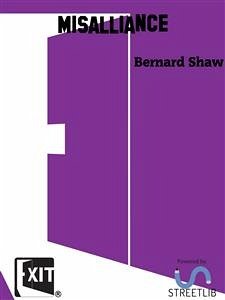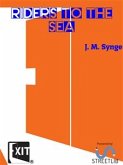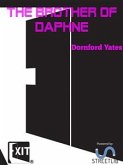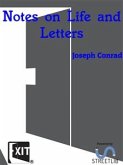Johnny Tarleton, an ordinary young business man of thirty or less, is
taking his weekly Friday to Tuesday in the house of his father, John
Tarleton, who has made a great deal of money out of Tarleton's
Underwear. The house is in Surrey, on the slope of Hindhead; and
Johnny, reclining, novel in hand, in a swinging chair with a little
awning above it, is enshrined in a spacious half hemisphere of glass
which forms a pavilion commanding the garden, and, beyond it, a barren
but lovely landscape of hill profile with fir trees, commons of
bracken and gorse, and wonderful cloud pictures.
The glass pavilion springs from a bridgelike arch in the wall of the
house, through which one comes into a big hall with tiled flooring,
which suggests that the proprietor's notion of domestic luxury is
founded on the lounges of week-end hotels. The arch is not quite in
the centre of the wall. There is more wall to its right than to its
left, and this space is occupied by a hat rack and umbrella stand in
which tennis rackets, white parasols, caps, Panama hats, and other
summery articles are bestowed. Just through the arch at this corner
stands a new portable Turkish bath, recently unpacked, with its crate
beside it, and on the crate the drawn nails and the hammer used in
unpacking. Near the crate are open boxes of garden games: bowls and
croquet. Nearly in the middle of the glass wall of the pavilion is a
door giving on the garden, with a couple of steps to surmount the
hot-water pipes which skirt the glass. At intervals round the
pavilion are marble pillars with specimens of Viennese pottery on
them, very flamboyant in colour and florid in design. Between them
are folded garden chairs flung anyhow against the pipes. In the side
walls are two doors: one near the hat stand, leading to the interior
of the house, the other on the opposite side and at the other end,
leading to the vestibule.
There is no solid furniture except a sideboard which stands against
the wall between the vestibule door and the pavilion, a small writing
table with a blotter, a rack for telegram forms and stationery, and a
wastepaper basket, standing out in the hall near the sideboard, and a
lady's worktable, with two chairs at it, towards the other side of the
lounge. The writing table has also two chairs at it. On the
sideboard there is a tantalus, liqueur bottles, a syphon, a glass jug
of lemonade, tumblers, and every convenience for casual drinking.
Also a plate of sponge cakes, and a highly ornate punchbowl in the
same style as the keramic display in the pavilion. Wicker chairs and
little bamboo tables with ash trays and boxes of matches on them are
scattered in all directions. In the pavilion, which is flooded with
sunshine, is the elaborate patent swing seat and awning in which
Johnny reclines with his novel. There are two wicker chairs right and
left of him.
Bentley Summerhays, one of those smallish, thinskinned youths, who
from 17 to 70 retain unaltered the mental airs of the later and the
physical appearance of the earlier age, appears in the garden and
comes through the glass door into the pavilion. He is unmistakably a
grade above Johnny socially; and though he looks sensitive enough, his
assurance and his high voice are a little exasperating.
JOHNNY. Hallo! Wheres your luggage?
taking his weekly Friday to Tuesday in the house of his father, John
Tarleton, who has made a great deal of money out of Tarleton's
Underwear. The house is in Surrey, on the slope of Hindhead; and
Johnny, reclining, novel in hand, in a swinging chair with a little
awning above it, is enshrined in a spacious half hemisphere of glass
which forms a pavilion commanding the garden, and, beyond it, a barren
but lovely landscape of hill profile with fir trees, commons of
bracken and gorse, and wonderful cloud pictures.
The glass pavilion springs from a bridgelike arch in the wall of the
house, through which one comes into a big hall with tiled flooring,
which suggests that the proprietor's notion of domestic luxury is
founded on the lounges of week-end hotels. The arch is not quite in
the centre of the wall. There is more wall to its right than to its
left, and this space is occupied by a hat rack and umbrella stand in
which tennis rackets, white parasols, caps, Panama hats, and other
summery articles are bestowed. Just through the arch at this corner
stands a new portable Turkish bath, recently unpacked, with its crate
beside it, and on the crate the drawn nails and the hammer used in
unpacking. Near the crate are open boxes of garden games: bowls and
croquet. Nearly in the middle of the glass wall of the pavilion is a
door giving on the garden, with a couple of steps to surmount the
hot-water pipes which skirt the glass. At intervals round the
pavilion are marble pillars with specimens of Viennese pottery on
them, very flamboyant in colour and florid in design. Between them
are folded garden chairs flung anyhow against the pipes. In the side
walls are two doors: one near the hat stand, leading to the interior
of the house, the other on the opposite side and at the other end,
leading to the vestibule.
There is no solid furniture except a sideboard which stands against
the wall between the vestibule door and the pavilion, a small writing
table with a blotter, a rack for telegram forms and stationery, and a
wastepaper basket, standing out in the hall near the sideboard, and a
lady's worktable, with two chairs at it, towards the other side of the
lounge. The writing table has also two chairs at it. On the
sideboard there is a tantalus, liqueur bottles, a syphon, a glass jug
of lemonade, tumblers, and every convenience for casual drinking.
Also a plate of sponge cakes, and a highly ornate punchbowl in the
same style as the keramic display in the pavilion. Wicker chairs and
little bamboo tables with ash trays and boxes of matches on them are
scattered in all directions. In the pavilion, which is flooded with
sunshine, is the elaborate patent swing seat and awning in which
Johnny reclines with his novel. There are two wicker chairs right and
left of him.
Bentley Summerhays, one of those smallish, thinskinned youths, who
from 17 to 70 retain unaltered the mental airs of the later and the
physical appearance of the earlier age, appears in the garden and
comes through the glass door into the pavilion. He is unmistakably a
grade above Johnny socially; and though he looks sensitive enough, his
assurance and his high voice are a little exasperating.
JOHNNY. Hallo! Wheres your luggage?









